How to Train Like a Kenyan Athlete
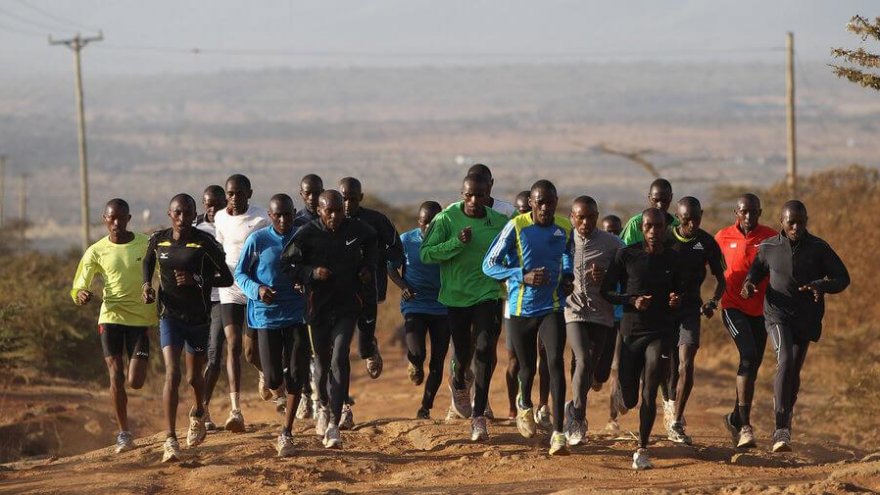
Every runner can learn something from the world’s best long distance runners: the Kenyans.
Kenyan distance running has dominated the world of running for decades with its success at the global road running and track and field level. As a country, Kenya has won an unprecedented 24 gold, 34 silver, and 24 bronze Olympic medals in individual distance running events (800m to marathon) since the 1964 Tokyo Olympics.
Kenya has also won 24 of 28 men’s team World Cross Country titles since 1986, and nine women’s titles.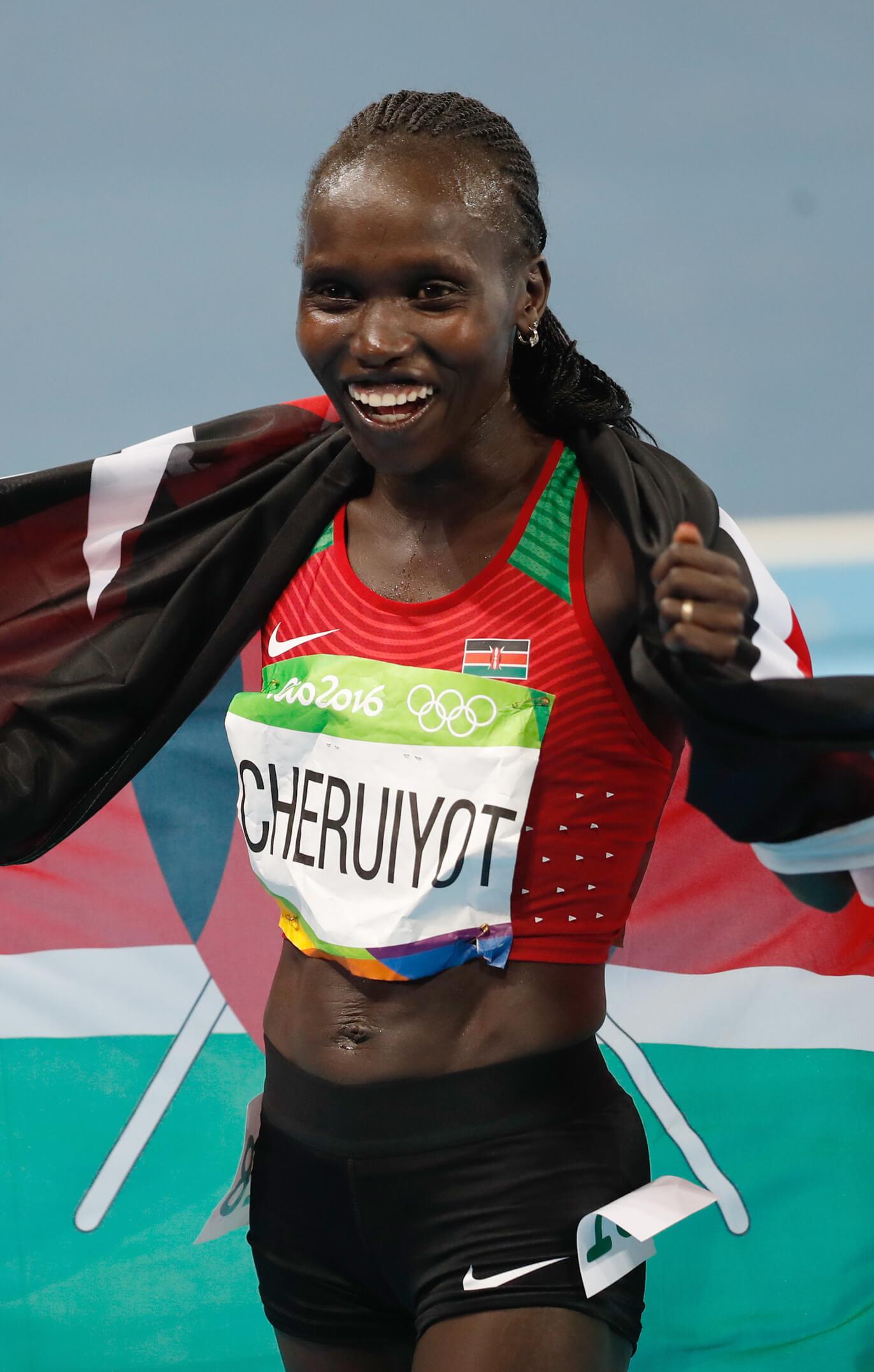
How could one relatively small country historically produce so so many champion athletes?
When asked for the reason behind their distance running success, Kenyans will tell you there is no secret except for hard, hard work.
The best Kenyan athletes adopt a lifestyle that revolves around one principle:
Keeping it simple.
They apply simplicity to all aspects of life. Sleeping, waking, eating, running, and resting are done with one purpose in mind: running as fast as possible and being the best in the world.
The Kenyan runner lifestyle can therefore be difficult for people steeped in Western culture to adopt. That’s ok! Examining the training and living habits of an elite runner from Kenya can be extremely inspiring and an educational exercise for any runner, no matter their experience or ability.
Adopting even a fraction of the methods used by the best Kenyans can motivate and improve your own training, racing, and love for running.
Here are some of the key tenets behind the Kenyan training philosophy.
Get your Rest

The huge workload undertaken by Kenyan athletes in hard training demands they rest like it’s their job… because it is. Rest is just as important as working out itself, because without rest, no adaptation from the stress of training can take place.
In many elite Kenyan training camps, runners are in bed by 9:00pm and lights out at 9:30. They rise at 6:30am for the first run and often take an afternoon nap for one to two hours. When they’re not running, eating, or sleeping, they engage in low energy activities like walking and socializing with teammates.
Cut out Distractions
One of the biggest advantages Kenyan runners have over their western counterparts is their ability to maintain comparatively simple, less distracted lifestyles. Their ability to keep their daily schedule simple goes hand in hand with resting. They’re not worried about work, social pressure, or status. They live in the present. Visitors to Kenyan training camps often cite how outgoing and happy the runners there are.
Most of us can’t make running the sole aspect of life, but you can engage in positive visualization and even meditation for a short time during the day in order to quiet your mind and prepare to run.
Start Runs Slow and Build
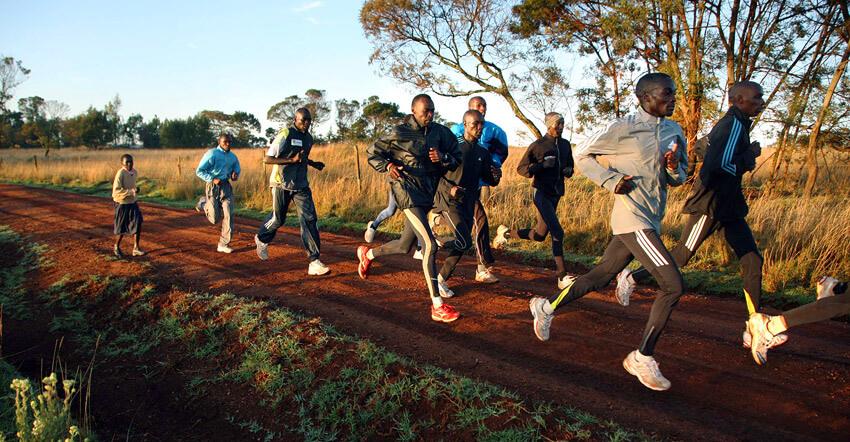
Kenyans are famous for the “Kenyan shuffle”, referring to the extremely slow pace they begin normal runs with. They pick up the pace considerably later on. Beginning a run slowly ensures that your legs and body are fully warmed up before you take on faster paces. You’ll feel better and avoid “shocking” your body into running fast.
Train at Elevation
Many of Kenya’s best runners come from a handful of tribes living at high elevations on the edge of the Great Rift Valley. From a young age, they develop a strong aerobic capacity by living and running at altitude, where the concentration of oxygen in the air is lower. Altitude training is a tool used by elite runners around the world, but few are exposed to altitude and exercise from a very young age like many Kenyans are.
There are stories of Kenyan children running to and from school everyday beginning in primary school. Many outsiders cite this early introduction to aerobic development as one of the keys behind Kenya’s distance running success. While many great Kenyan runners did jog to school occasionally, it’s not the rule. Many greats didn’t get their start running until later in high school.
Run on Dirt Roads
Running on soft surfaces like dirt and gravel can lessen the impact on your legs and help prevent injury. Kenyans often run on the unpaved roads around their training camps, allowing them to run for longer durations with less muscle fatigue. Logging high mileage per week on dirt roads is one of the biggest factors in Kenyan marathoning success.
Adding in runs on dirt, grass, and finely crushed gravel is a great way for you to prevent injury, strengthen stabilizing muscles and get a change of scenery during your training.
Run with Others
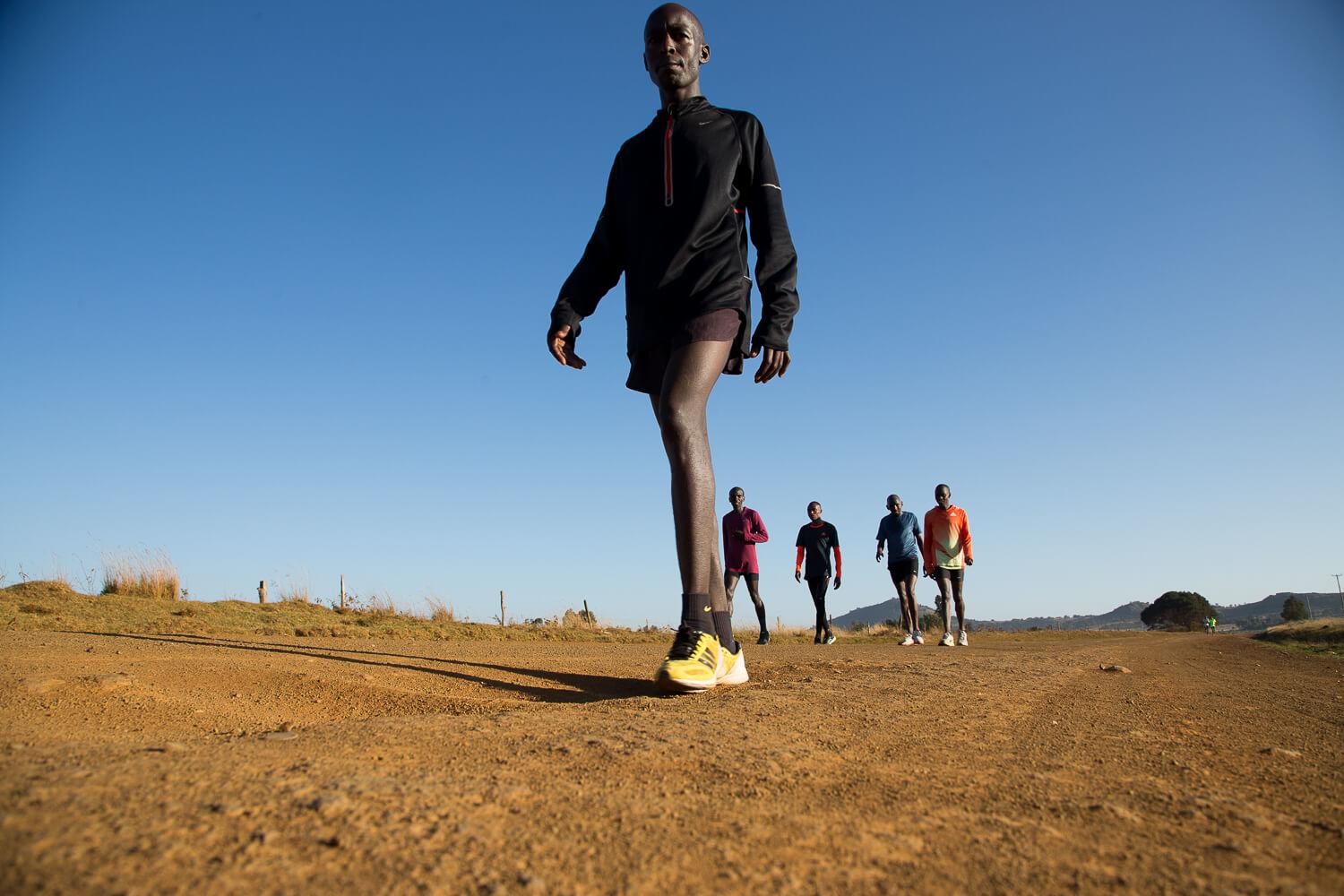
Running is a group effort for Kenyan athletes. It’s not unusual to see hundreds of men and women setting out for the morning run together in the town of Iten, Kenya. Most of the time, the group runs are totally unplanned and just happen as more and more people join the pack.
Together, Kenyan runners are able to push themselves harder in workouts than they could on a solo run. Running together also helps them practice pack running. The Kenyans are famous for their team running strategy in world cross country and track events. Team members will take up the pace in turn, keeping it fast and helping their fellow Kenyans.
The Kenyans are seriously competitive, but only on the run. The minute the pace slackens and the run is over, everybody is all smiles. Everyone wants success for those they train with!
Run Hills
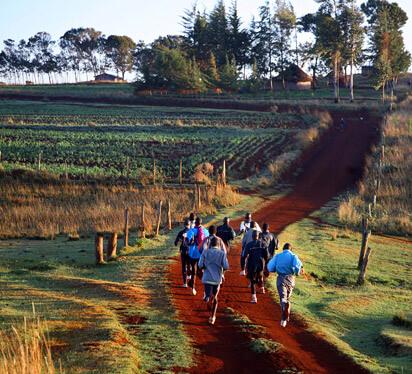
Some of the greatest Kenyan marathoners say they get their strength from running up hills. Ibrahim Hussein was the first Kenyan to win both the New York and Boston Marathons. When speaking about hill training, he said, “If you work the hills, then running on the flat is easy.”
Kenyans use two primary types of hill workouts: long, sustained climbs and short, fast hill repetitions.
A favorite short, fast hill repetition workout is anywhere from 10- 30 one minute uphill hard runs with a jog back downhill for recovery. A longer sustained hill workout entails running up a 3 to 5 percent grade for 30 to 90 minutes at a moderate pace. In Kenya, the roads on the slopes of the Rift Valley serve as a popular hill climbing spot.
Check out our experts’ opinions on running hills.
Do Fartleks
“Fartlek” means “speed play” in Swedish. The fartlek is one of the staples of Kenyan training. They can be as simple as an hour’s worth of alternating between one minute hard and one minute easy running. You can also alternate between two minutes hard and one minute easy. There really aren’t any rules when it comes doing fartlek training. Typically Kenyans don’t worry about their pace on these runs. They run on feel. After all, fartlek is supposed to be play!
Eat Ugali
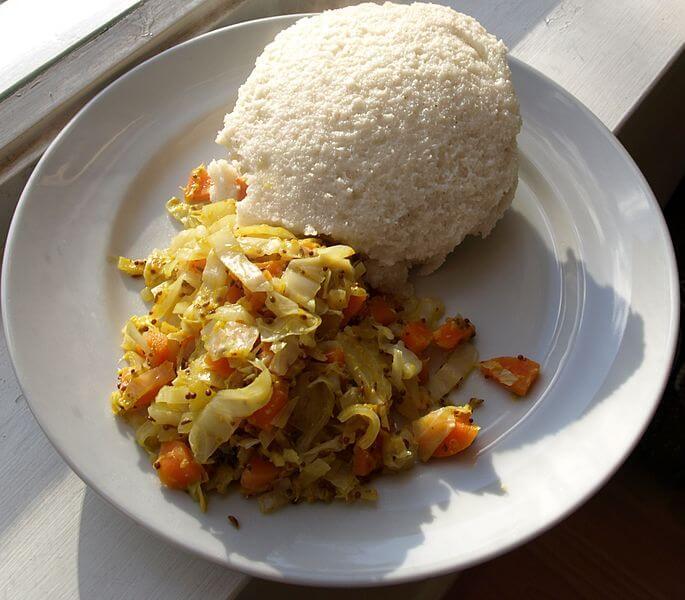
Maize is a major crop in Kenya for its easy cultivation and growth in the agreeable climate. In Kenya, corn is dried, ground, and mixed with water to make Ugali, a staple Kenyan food that closely resembles polenta. Ugali is usually eaten with vegetables and a protein such as beef or goat. The final product provides a rich source of carbohydrates and protein, perfect for the hard working Kenyan runner.
Go for Walks
This is an easy one! On free afternoons, Kenyan runners often go for a stroll. Getting in an easy walk several hours after running, especially after long runs and hard workouts promotes blood flow to your muscles and aids recovery.
Even if you don’t have time to go for a long walk, getting in the habit of moving around after a long day of sitting at work can help you feel better for your next run.
Believe, Believe, Believe!
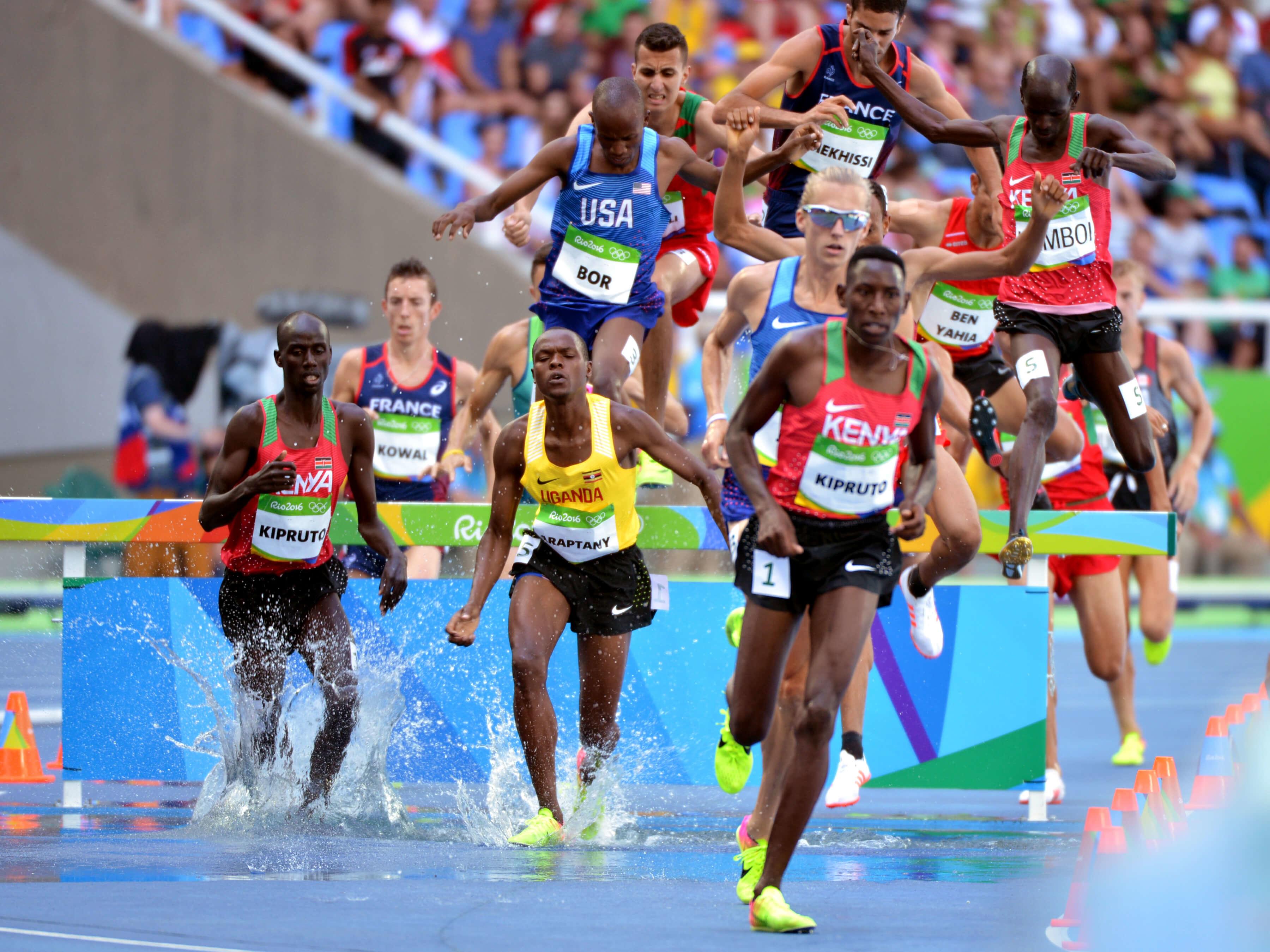
The biggest weapon Kenyan runners possess is their belief in themselves. Each and every Kenyan athlete in training fully believes they are capable of making Kenya’s Olympic team or running in a world marathon major race. Instead of thinking that there are too many good athletes to beat, they think, “Why not me?”
You don’t have to be a Kenyan to find success in running. Believing in yourself, visualizing your goals, and keeping things in perspective can make you a great runner, too.
Sources
[1] More Fire, Toby Tanser (Westholme Publishing, 2008).
[2] https://en.wikipedia.org/wiki/Kenya_at_the_Olympics
[3]https://en.wikipedia.org/wiki/IAAF_World_Cross_Country_Championships#Senior_Men.27s_Team_Medals
[4]http://www.whats4eats.com/grains/ugali-recipe
Latest Articles
 Is Running on a Treadmill Easier Than Running Outside?Runners have their own preferences, whether it is treadmill running, running outside on the road, or exploring trails. So...
Is Running on a Treadmill Easier Than Running Outside?Runners have their own preferences, whether it is treadmill running, running outside on the road, or exploring trails. So... Is It OK to Use Trail Running Shoes on the Road?While trail running shoes can be used on roads, especially in situations where a runner encounters mixed terrains or pref...
Is It OK to Use Trail Running Shoes on the Road?While trail running shoes can be used on roads, especially in situations where a runner encounters mixed terrains or pref... How to Fix Sore Quads After Running?Rest, ice, gentle stretching, and over-the-counter pain relievers can help soothe sore quads after running. Also, ensure ...
How to Fix Sore Quads After Running?Rest, ice, gentle stretching, and over-the-counter pain relievers can help soothe sore quads after running. Also, ensure ... 10 Fruits With The Most Electrolytes to Replace Sports DrinksThese fruits are high in electrolytes such as potassium, magnesium, and calcium, essential for hydration, muscle function...
10 Fruits With The Most Electrolytes to Replace Sports DrinksThese fruits are high in electrolytes such as potassium, magnesium, and calcium, essential for hydration, muscle function...

